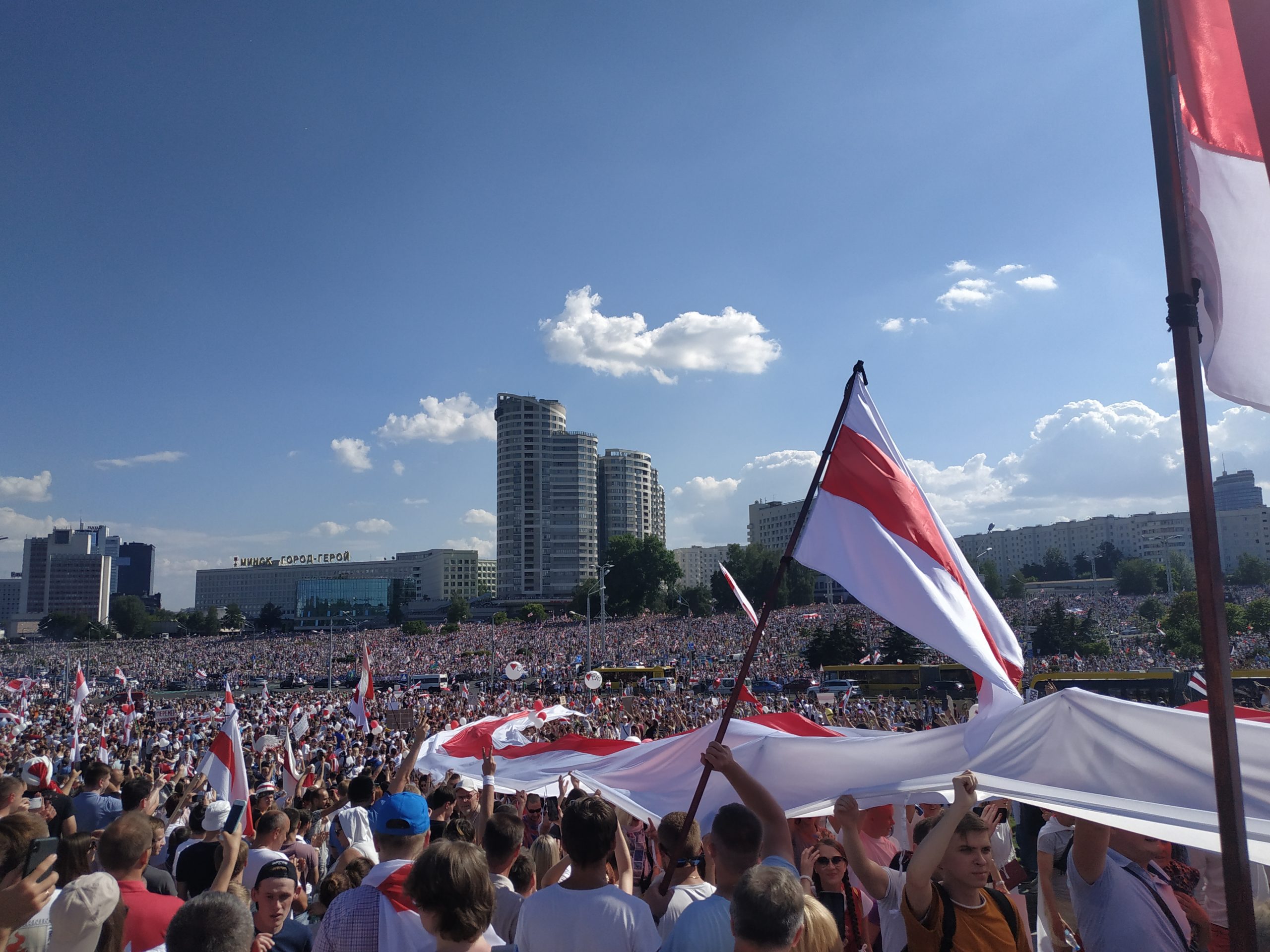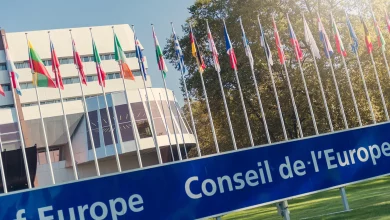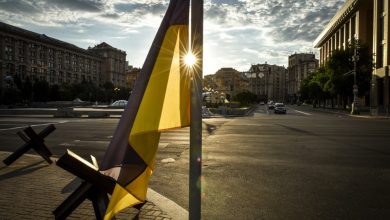Three Years since the Massive Protests in Belarus: Repressions against the Media Continue

Three years after citizens of Belarus stood up to demand a fair count of their votes in the 2020 presidential elections, the International Press Institute (IPI) global network again declares its solidarity with restoring democracy in the country, according to the article published on the organization’s website. In the context in which the president of Belarus, Alexander Lukashenko has eliminated independent press in the country, the IPI renews its demand for the immediate release of all imprisoned journalists as well as the repeal of all bans on the operations of independent media in the state.
According to the IPI, until the 2020 elections, Lukashenko had controlled the media while allowing for a narrow space online for independent media. However, in the wake of the 2020 mass protests, he cracked down on all remaining critical voices remaining in Belarus in an attempt to censor all information about popular discontent. Free press was blamed for “inciting” the protests. In the very first weeks, journalists from such popular newsrooms as Belsat and Nasha Niva were shot with rubber bullets by law enforcement officers despite wearing “PRESS” badges. Later, dozens of journalists from Belarus and abroad were attacked by security who seemed to make no difference between media representatives and protesters when beating or arresting them. Independent websites were blocked, and citizens of Belarus had to use Telegram news channels to learn about the situation in the country.
Arrested Journalists
According to the Belarusian Association of Journalists (BAJ), 35 journalists and media representatives remain jailed. Before the elections, the IPI reports, the Belarusian authorities escalated the practice of jailing journalists. The first target was a Radio Free Europe journalist who was detained two months before Lukashenko’s reelection, and later sentenced to 15 years in prison for allegedly “organizing riots” and “inciting hatred.” He was accused of doing so by administering a popular news channel on Telegram.
The situation worsened after the vote. Two Belsat journalists were arrested for video streaming an anti-Lukashenko protest in Minsk. One of the journalists was sentenced to two years in prison for “organizing events violating public order,” while her colleague received over eight years on the same charges, as well as for “state treason.”
Since then, several waves of repression hit independent media in Belarus. In March, a Polish-Belarusian journalist and Gazeta Wyborcza correspondent was jailed. In May, the authorities arrested two media representatives, the editor-in-chief and the director of Tut.by, the portal which was the most popular media outlet in Belarus. In January 2023, a court in Minsk sentenced both of them to 12 years in prison.
Independent Media Blocked and Labeled as Extremist
Following the mass protests of 2020, the authorities of Belarus began designating independent media as “extremist formations”, banning any reader interactions with those entities. Subscribing to these portals was qualified as “assisting an extremist formation,” and sharing the content could result in fines and even arrests. Such label as “extremist formations” was applied to most of the popular independent media in Belarus, including Belsat, Euroradio, Tut.by, Nasha Niva, RFE/RL Belarus service, Charter 97, and Zerkalo.io, the successor of Tut.by currently working from abroad. Almost all independent institutions were forced to move their activity abroad and carry out their activities in exile.
Toughening Regulations and Crackdown on Remaining Local Media
Although press freedom in Belarus is at its lowest level since the country’s independence, the IPI emphasizes that the authorities in Minsk continue to pass draconian legislation that stifles the work of journalists.
On July 1, 2023, Lukashenko signed a new law that enables authorities to oust foreign media outlets from countries that the Belarusian government designates as “unfriendly”. Days after the adoption of the law, Belarusian border guards expelled a correspondent from PAP, Poland’s national press agency.
At the local level, after briefly allowing Intex-Press to reopen, the authorities again blocked access to this webpage and disbanded the media group. The editor-in-chief of Rehianalnaya Gazeta (“Regional Newspaper”), a major news outlet in the town of Maladzechna, was detained. He was accused of “discrediting Belarus” and now faces up to four years in prison.
In June, media workers at Ranak TV, a local media in the city of Svietlahorsk, were detained and jailed for several days after the publication of an article on a recent explosion at a factory near the city that left several workers dead. Later, the authorities forced the media company to close and to deactivate its website.
International Solidarity
“Three years after the start of mass pro-democracy protests in Belarus, there is no end in sight to the horrendous crackdown on free media and journalists in the country. The Lukashenko regime is determined to silence any independent reporting in the country as part of its effort to cling to power. The IPI global network stands in solidarity with the incredibly courageous Belarusian journalists who continue to do their work in and outside the country, often at great risk to themselves. (…) We continue to demand an end to the crackdown, including the release of all imprisoned journalists and media workers. (…) The international community must continue to support Belarusian independent media, including ensuring the proper support and conditions for journalists in exile, keeping the foundations for journalism in a future democratic Belarus alive,” PI Deputy Director Scott Griffen said, as quoted on the organization’s website.




